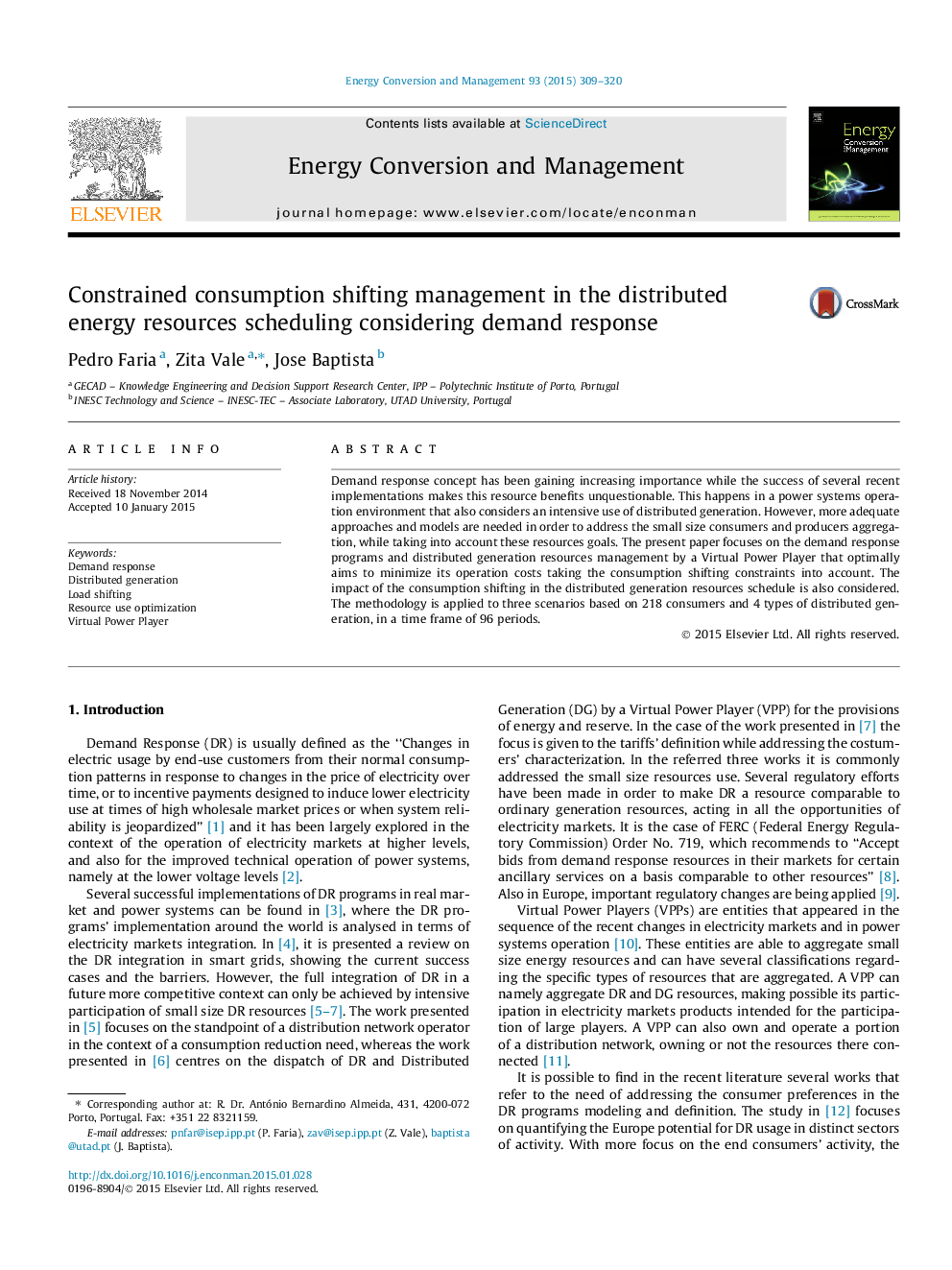| کد مقاله | کد نشریه | سال انتشار | مقاله انگلیسی | نسخه تمام متن |
|---|---|---|---|---|
| 7162855 | 1462869 | 2015 | 12 صفحه PDF | دانلود رایگان |
عنوان انگلیسی مقاله ISI
Constrained consumption shifting management in the distributed energy resources scheduling considering demand response
ترجمه فارسی عنوان
مدیریت محدودیت مصرف تغییر در برنامه ریزی منابع انرژی توزیع شده با در نظر گرفتن تقاضای پاسخ
دانلود مقاله + سفارش ترجمه
دانلود مقاله ISI انگلیسی
رایگان برای ایرانیان
کلمات کلیدی
پاسخ تقاضا، نسل توزیع شده، تغییر بار، بهینه سازی استفاده از منابع، مجازی قدرت پخش،
ترجمه چکیده
مفهوم واکنش تقاضا برای اهمیت فزاینده افزایش یافته است، در حالی که موفقیت چندین پیاده سازی اخیر باعث می شود که این منابع غیرقابل انکار باشد. این اتفاق در یک محیط عملیاتی سیستم های قدرت رخ می دهد که همچنین استفاده شدید از تولید توزیع شده را در نظر می گیرد. با این وجود، رویکرد ها و مدل های مناسب تر برای رفع مصرف کنندگان کوچک و جمع آوری تولید، در حالی که با توجه به اهداف این منابع، مورد نیاز است. مقاله حاضر بر برنامه های پاسخ تقاضا و مدیریت منابع نسبی توزیع شده توسط یک پلتفرم مجازی تمرکز دارد که به طور مطلوب هدف آن به حداقل رساندن هزینه های عملیاتی آن است که محدودیت های انتقال مصرف را در نظر گرفته اند. تأثیر تغییر مصرف در برنامه منابع تولیدی توزیع شده نیز در نظر گرفته شده است. این روش به سه سناریو مبتنی بر 218 مصرف کننده و 4 نوع تولید توزیع شده در یک دوره زمانی 96 دوره اعمال شده است.
موضوعات مرتبط
مهندسی و علوم پایه
مهندسی انرژی
انرژی (عمومی)
چکیده انگلیسی
Demand response concept has been gaining increasing importance while the success of several recent implementations makes this resource benefits unquestionable. This happens in a power systems operation environment that also considers an intensive use of distributed generation. However, more adequate approaches and models are needed in order to address the small size consumers and producers aggregation, while taking into account these resources goals. The present paper focuses on the demand response programs and distributed generation resources management by a Virtual Power Player that optimally aims to minimize its operation costs taking the consumption shifting constraints into account. The impact of the consumption shifting in the distributed generation resources schedule is also considered. The methodology is applied to three scenarios based on 218 consumers and 4 types of distributed generation, in a time frame of 96 periods.
ناشر
Database: Elsevier - ScienceDirect (ساینس دایرکت)
Journal: Energy Conversion and Management - Volume 93, 15 March 2015, Pages 309-320
Journal: Energy Conversion and Management - Volume 93, 15 March 2015, Pages 309-320
نویسندگان
Pedro Faria, Zita Vale, Jose Baptista,
